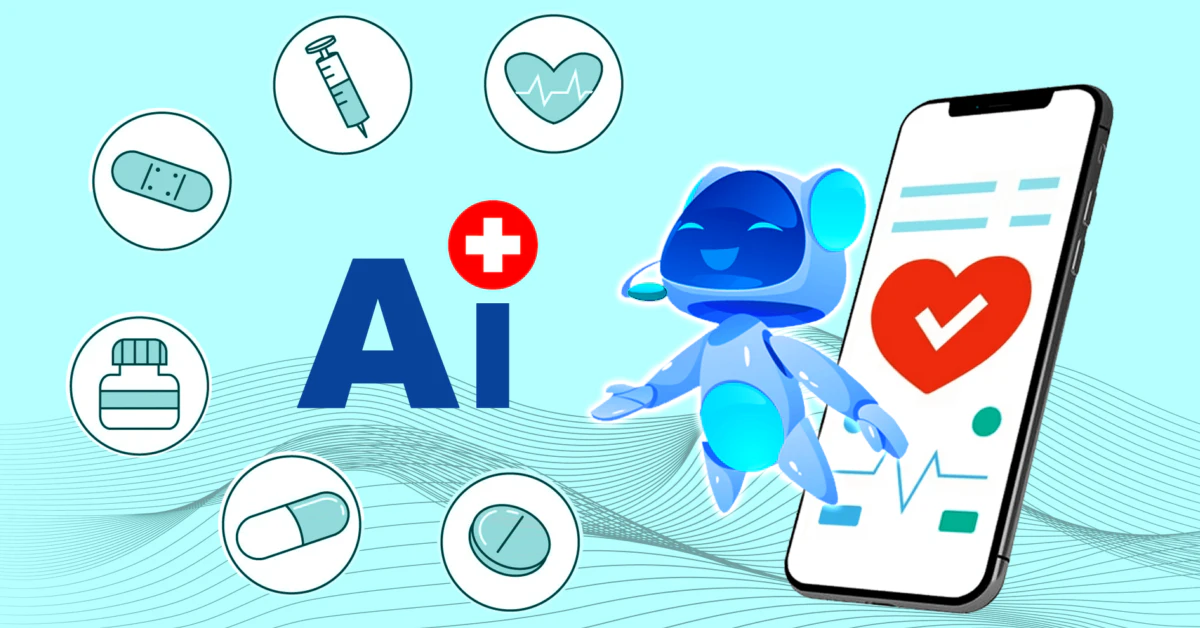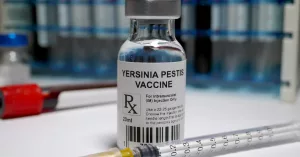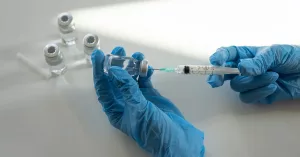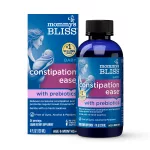You’re scrolling past headlines about AI in healthcare, right? “Another tech hype train,” you think. But hang on—what if I told you this train’s already here? Doctors aren’t just filing paper records anymore; they’re sifting through AI-generated insights while you’re still drinking your morning coffee.
Here’s the real talk: AI isn’t replacing humans at the hospital. It’s giving them super-strength for everyday battles—like catching heart disease before symptoms scream in your face. But let’s be real, folks:
- This tech’s like a free-for-all garage sale sometimes—privacy theft, biased answers, or plain ol’ software glitches? Let’s pick through the haul wisely.
- Know why someone in rural Nebraska might get diagnosed faster next year? We’ll get there.
Diagnostics revamp
Borrowing flashlights from the future, folks. Fancy algorithms now slice through messy EHR data faster than you’d find your car keys at a family reunion. A few years back, doctors manually flipped through your life story hoping to catch a red flag—now AI hands it to them on a platter. But people ask:
Can AI catch things humans miss?
Leaf through my friend’s work week—he’s a radiologist. Last month, his AI pal, RadRoom (not its actual name), spotted the very beginning of lung cancer in scans that even his trained eye passed over. You know what? Machine said, “Wait—see that shadow?” Turns out machines rock trivia, but our skills? Nuance. You don’t solve a crossword without both, y’know?
RadRoom EHR enhancement flow
| Step | Task | Traditional Time | AI Assisted |
|---|---|---|---|
| 1 | Marker detection | 3 hours | 12 minutes |
| 2 | Patient risk stratification | 2 hours | 5 minutes |
| 3 | Follow-up recommendation prep | 1 hour | 15 minutes |
Future friction
Why medical teams are dragin’ feet
Burnout’s already at epidemic levels—and now we’re asking doctors to translate Data Science gibberish, too? Nurses whisper, “Will my alarm be smarter than me?” I get it—their careers were built trusting gut reactions and two coffee-stained stethoscopes.
Here’s a Texas hospital’s situation—drew a hard line on hiring AI experts. Reason number one? Their EHR vendors charged double for “smart filters.” Okay, cost headaches happen—but the machines kept flagging false positives. Imagine your smoke detector blaring nonstop through Wednesday. Yeah, frustration escalates quick.
Automation risk comparison
- Radiology reading
- Pros: 75% faster imaging review
- Cons: Falls flat when tumors wear Weird Science concentration shapes (BMC 2022.)
- ER admission triage
- Pros: Gets patients faster beds
- Cons: Struggles with cultural-specific symptoms (HIMSS 2024.)
Red tape wrangle
Paperwork should’ve burned in the Y2K blaze. But suggesting AI for drug discovery? Suddenly Uncle Sam’s worst gossip aunt appears—HIPAA reviews! FDA checklists! That 1980s clerk vibe returns.
Can you build something if no one agrees how?
You’re trying to fix a race car mid-drive—you need regulation to make pit stops safe. 2025’s chefs are cooking hybrid tools that appease both clinicians and paper-pushers. Ever heard of Mayo Clinic’s “AI First” initiative that made nurse managers high-five their lawyers for once? Now that’s futuristic diplomacy.
Top 3 FDA restrictions (2025)
- Algorithm chain-of-custody docs—basically, your AI’s baby book
- Risk tier labeling (like dishing out speed limits per code line)
- Post-release mandatory audits—think of this like a reckless AI getting grounded
A silence solution
Changing plates on a moving train
Medical schools in Charleston notice clinicians need ninja-level AI literacy. Old-school tricks—dry erase boards and hour-long lectures—started failing. Here’s where U of C developed their “two-click” crash course: less motivational speeches, more “fix this code” scenarios with Indiana Jones if stakes were lower. Faculty even made errors screenshot worthy so nobody felt dumb.
Examples from their “training errors headline” section became memes though (Cedars-Sinai report.)
Ed tech timeline
- 2022 — First video game-style anatomy drills
- 2023 — Team drills where Surgeon Galileo teams with AI Aisha to strategize tumors
- 2025 — Everyone on rounds experiments with EHRs like they’re mixing cocktails. Best ones? Remix and re-rank diagnostic checklists alongside mentors!
2025: Leap or stumble?
Why we’re all rooting for hybrid hospitals
I’m pulling for Pittsburgh General. A few months back, their AI nurse Pepper flagged two septic patients you’d otherwise miss while cleaning up IV trays. Why’d it work? They paired it with human interpretations and cross-board reviews—team mental math that machines can’t do alone.
Here’s the whisper: Those healthcare trust dolls are dishing out more risk tolerance now because leaders finally understand—blind faith in AI is worse than trusting game show gestures. Ask yourself: Do you trust a black box surgeon robot? If you’ve broken a bone before… I bet you chilled out while a flesh-and-blood doctor checked the monitor.
AI+Human checklist
- Double-check for cultural bias? Yearly audit with PgMedic platform’s transparency panel
- In sync or in conflict? Med teams are using AI Symbiosis Score in Illinois hospitals
- Don’t just store that data—socialize it with your entire team or don’t share stakes
Okay, back to basics—but back in the Doc’s lounge, not some server farm. When my aunt visited a new clinic last spring, her chart blinked red—unregulated herbal supplements mixing with her prescription. Nervous system? Nope—her doc insisted she never ditch the herbal stuff unless they tested the interaction together. AI flagged the combination; the doc found the “no stress” solution.
So what’s this future ground? Famous institutions like Weill Cornell added learning systems that pull real-time hospital events for treatment refinements—not magic, but tiny evolutions every shift. Here’s their sneaky good trick: Team huddles start with AI glitches from last night. Everyone learns—two birds with one mindful team stone.
You can argue if AI tools are “smart,” if they’re being clung to too tight, or ignored too quickly. But flip the coin: Health systems that overlook AI may fall behind—like just barely dialing a flip phone to order complex medicine.
You’ll see knee-jerk AI tabloid yang between headlines of saviors and dystopians. Look for where things fall together sensibly. What questions will you ask your care providers next year? Share them below—or just vent. I hear “Heart disease predictor lingo” can twist your tongue awkward. We’ve all been there.
To deploy or not?
You know what AI in healthcare is like now? Trying on your favorite vintage jacket—fits great… until you sit down and the sleeve tears. For every RadRoom success, some ethics committee mops up burnouts.
Coach the user besides the machine
Even the experts—like those at U of California— Beggin’ you: “Don’t build finger guns at EHRs using ancient practices.” Hey, here’s a tip:Talk to your local nurses’ union. They’ve got heatmaps of redundant entries. Perfect spots for initial AI infiltration. And—not-so secret sauce? Make sure someone knows that tech intimately—like struggling with refactoring old SQL. You don’t destroy until understanding.
Bottom line: You pick your horse short-term with AI. Ask if it’s solving messier problems or just puffing up a presentation’s “analytics” slide. Future’s fascinating—but we all want actionable solutions today, not Algorithm Fantasy Land promises. Want a better shot at landing in the right place? I can walk you through prototypes or no-go-zones here in comments. Still undecided? Hey—we adore PT questions here.

























Leave a Reply
You must be logged in to post a comment.